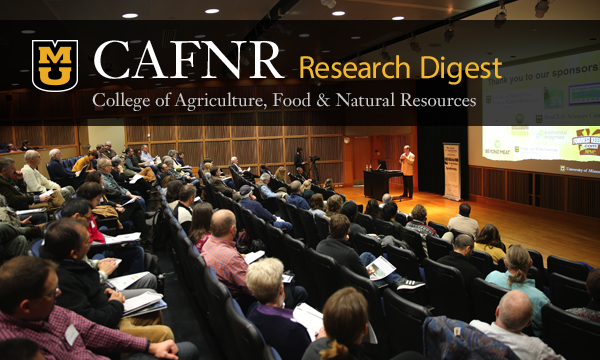|
CAFNR faculty members have received the following recent grants (listed by Principal Investigator):
Pengyin Chen, Developing the Perfect Molecular Markers and New Germplasm for Rapid Incorporation of Resistance to Soil Borne Pathogens of Soybean, 1/1/2020-12/31/2020, $75,000, Ohio State University
Randall Prather, SPARCPigs: Transgenic Pigs with Red-shifted Channel rhodopsin-Citrine Fusion Proteins, 7/1/2019-6/30/2020, $21,300, University of Florida
James T. English, Acquisition of Goods and Services – 966 Admin Costs, 4/1/2019-3/31/2020, $3,001, Agricultural Research Service
Provided by the MU Office of Research
|
